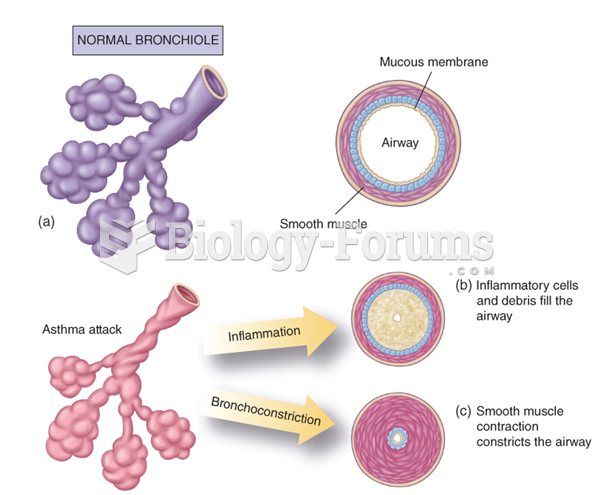|
|
|
Blood is approximately twice as thick as water because of the cells and other components found in it.
Serum cholesterol testing in adults is recommended every 1 to 5 years. People with diabetes and a family history of high cholesterol should be tested even more frequently.
Fungal nail infections account for up to 30% of all skin infections. They affect 5% of the general population—mostly people over the age of 70.
Blastomycosis is often misdiagnosed, resulting in tragic outcomes. It is caused by a fungus living in moist soil, in wooded areas of the United States and Canada. If inhaled, the fungus can cause mild breathing problems that may worsen and cause serious illness and even death.
Women are 50% to 75% more likely than men to experience an adverse drug reaction.
 Acute exacerbations of asthma can require management in the emergency department. The child is place
Acute exacerbations of asthma can require management in the emergency department. The child is place
 Volvulus. A volvulus results when the small intestine twists, causing an obstruction that can lead t
Volvulus. A volvulus results when the small intestine twists, causing an obstruction that can lead t





